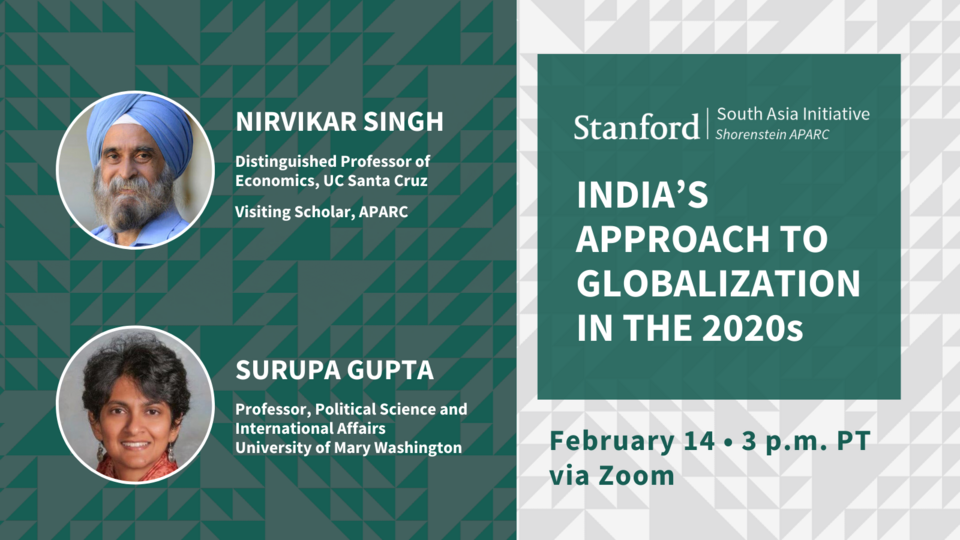India’s Approach to Globalization in the 2020s
India’s Approach to Globalization in the 2020s
Tuesday, February 14, 20233:00 PM - 4:00 PM (Pacific)
Online via Zoom

Major economies around the world have re-evaluated their policy approach to globalization in recent years. The devastating pandemic exposed countries to the vulnerabilities of their supply chains, and the dangers of exposure to international markets. India has also begun to adjust its policy settings, with the government prioritizing Atmanirbharta, or self-reliance. Join two of the most insightful scholars of Indian political economy as we explore the feasibility and the implications of India’s policy approach to globalization. How much self-reliance can India realistically achieve, and what will that mean for the Indian economy? How is India applying the principle of “friend-shoring” in its political-economic partnerships? How deeply will India engage in international frameworks like the US-led Indo-Pacific Economic Framework for Prosperity, and what will that mean for its international position?
Speakers:

Dr Nirvikar Singh is a visiting scholar at the Shorenstein Asia-Pacific Research Center at Stanford, and Distinguished Professor of Economics at UC Santa Cruz. He previously directed the UCSC South Asian Studies Initiative, and served as a member of the Advisory Group to the Finance Minister of India on G-20 matters, and Consultant to the Chief Economic Adviser of India. He is currently serving on the Expert Group on post-Covid-19 economic recovery formed by the Chief Minister of Punjab state in India. Professor Singh’s current research topics include entrepreneurship, information technology and development, electronic commerce, business strategy, political economy, federalism, economic growth, the Indian economy, and Sikh and Punjabi studies. He has authored over 100 research papers and co-authored or co-edited six books, and received his PhD from the University of California, Berkeley.

Dr Surupa Gupta is a professor of Political Science and International Affairs at the University of Mary Washington in Fredericksburg, Virginia. She also directs the university’s Women’s, Gender, and Sexuality Studies Program. Her current research focuses on the politics of agricultural and trade policies in India as well as India’s engagement with international organizations such as the IMF and WTO. Her most recent research on India’s engagement with the IMF was published in Contemporary South Asia in May 2022. She teaches courses on international political economy, South Asian politics and gender and development. She studied Economics and International Relations in India before getting her PhD in International Relations from the University of Southern California.
Moderator:

Dr Arzan Tarapore is the South Asia research scholar at the Shorenstein Asia-Pacific Research Center at Stanford University, where he leads the South Asia Initiative. His research focuses on military strategy, Indian defense policy, and contemporary Indo-Pacific security issues. Prior to his scholarly career, he served as an analyst in the Australian Defence Department. Arzan holds a PhD from King’s College London.
